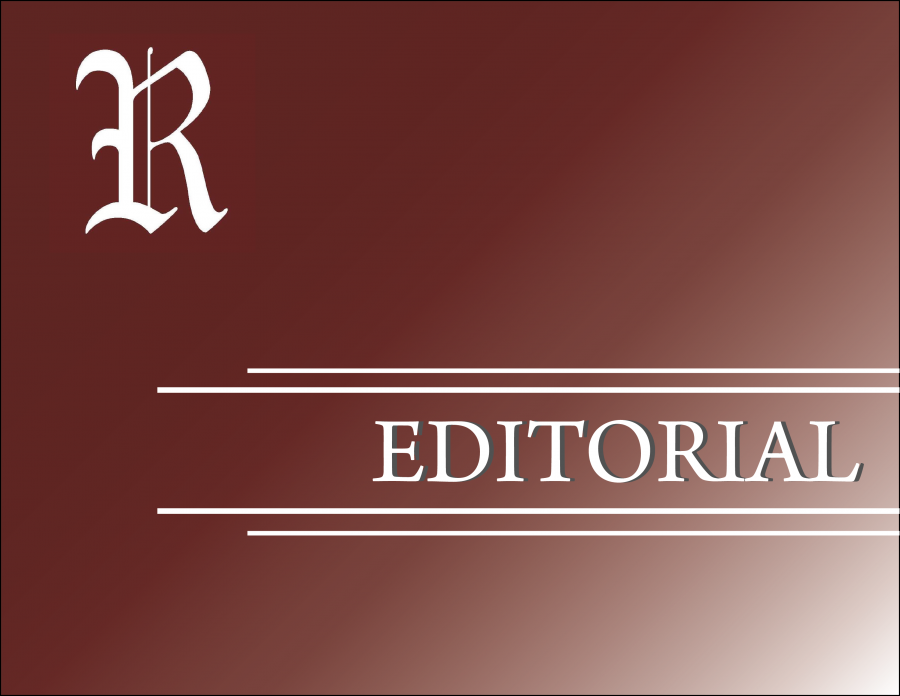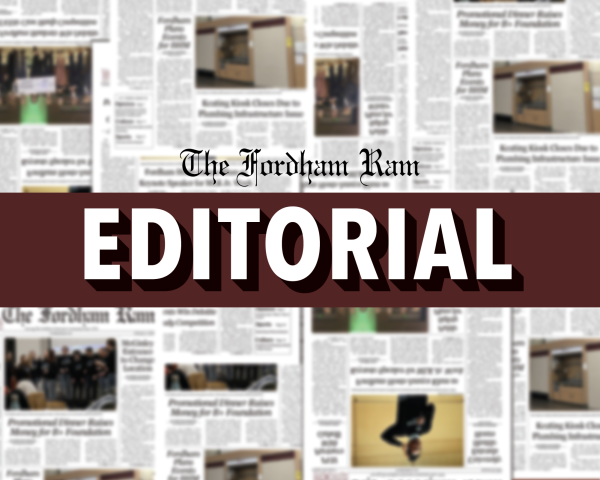The Need for Clear Guidance Amid the COVID-19 Pandemic
With the fall 2020 semester officially underway, Fordham University’s COVID-19 preparation plans are being put to the test. Throughout the summer, policies and emails regarding campus life this fall were ever-changing, and many students arrived unsure of what to expect from this new experience.
Now that students have returned to campus, it is imperative that communications from the university are clear. While the situation will continue to evolve over the course of the semester, the Fordham community deserves to be continually updated and informed about any new policies or modifications to existing policies. The information must be made easily accessible, clear-cut and efficiently communicated.
As the university’s journal of record, we at The Fordham Ram have the same goal. As rules and regulations change throughout the semester, we are committed to keeping our readers updated and informed. However, we struggle to do so if policies are ambiguous and those responsible for them are uncommunicative.
Though Fordham has communicated many policies via email, these policies often change without notice.
Community safety regulations, such as a 10-person capacity for social gatherings, required testing dates and mandated color-coded bracelets based on test results, are absent from the Fordham website. With many on-campus room assignments down at least one roommate, the policy, again unofficial, is that the capacity is one additional person for each roommate. Despite greater space in the dorm, the capacity decreases. With more roommates, the capacity is increased despite less space. Off-campus apartments with varying capacities have not been made official, leading to the ambiguity surrounding how many guests per roommate and if the 10-person capacity applies universally.
Fordham has provided a facility for on-campus COVID-19 testing, but it is unclear whether further tests are offered after the first two tests, especially for students residing off-campus who may visit campus for an in-person class or other reasons.
Some of the most crucial information is found within the COVID-19 safety module developed for students. The Community Safety Expectations are found 27 pages into the module, and the information is not found on Fordham’s website.
With so many students, especially upperclassmen, residing in off-campus apartments within the Bronx area, community expectations must be explicitly made clear to elucidate the potential consequences of breaking these rules. Fordham, as an institution, bears a responsibility to protect the local community, one that has been hit particularly hard by the COVID-19 pandemic.
At this year’s New Student Orientation, it was made apparent that the university was unsure of how to proceed with many of the program’s events. The candle lighting ceremony, typically held on Edward’s Parade with all of the incoming freshmen, was switched to being held virtually on the same day it was to occur. A university-sponsored event for orientation leaders sparked controversy online as students worried about the number of people in attendance.
Many crucial questions related to the pandemic still linger within the community. The protocol for a positive test of both students and faculty, quarantine requirements for exposure and the role of Public Safety in enforcing guidelines all remain unclear. By no means do these decisions have simple solutions.
First and foremost, students from outside of the area are guests in this space during our time at Fordham — we must respect those that live in Belmont and the Bronx. We want to applaud those in the community who have remained dedicated to following all of the necessary safety protocols both on campus and off. We must continue to observe regulations required by both New York State and Fordham, even if that comes at a personal cost.
Although students must hold themselves accountable to be responsible, they must be well-informed of what the university expects from them. While we hope that the responsibility of so many in the community continues, it would be ignorant to believe that violations will not occur.
We are aware and sympathetic of the effect this may have on the mental health of the university. Upperclassmen, with friends on and off-campus whom they have known for years now, may miss their peers who are just seconds away. Freshmen may feel lonely and limited in social interactions while struggling to adapt to a completely new environment. This is not to dismiss those concerns. It is to say that we must work together (or, rather, socially distanced) to prevent the spread of COVID-19 within the university, and more broadly, the Belmont community.
With the most recent testing results indicating that the Rose Hill campus has no confirmed cases of COVID-19, it is clear that students, faculty and the administration are taking the situation seriously. It is imperative that the positive state of affairs at the current moment does not serve as a motivator for more lenient or reckless behavior. As a community, we owe it to one another to maintain personal responsibility as well as hold the administration accountable as proactive leaders in an ever-changing situation.
At The Fordham Ram, we will continue to ask these questions. We remain dedicated to keeping the community informed about any updates regarding the university’s policies and actions throughout the fall semester. As we function entirely online this semester, we will continue to ensure accuracy and maintain journalistic integrity in all reporting.













































































































































































































